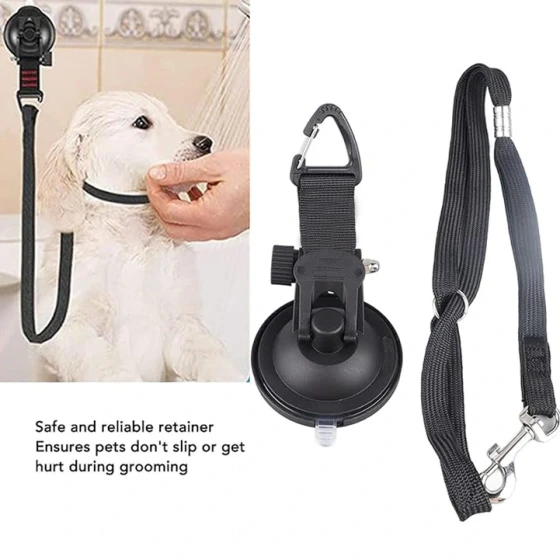Three Essential Vitamins for Dogs

Vitamins are also very important for dogs. Although dogs can synthesize many vitamins on their own, some vitamins are indispensable for them. If a dog lacks a certain vitamin, its body may develop some problems.
1. Vitamin A:
Vitamin A is a fat-soluble vitamin, mainly found in animal feed; plant feed does not contain vitamin A, but the β-carotene it contains can be converted to vitamin A in the dog’s body.
The main physiological functions of vitamin A are to maintain normal vision and the normal physiological functions of mucosal epithelial cells. When a dog is deficient in vitamin A, it first shows reduced dark adaptation ability, even night blindness and keratoconjunctivitis sicca. Affected dogs’ corneas thicken and keratinize, forming a cloudy appearance, sometimes with ulcers and perforations, even blindness; growth is retarded and body weight decreases.
When vitamin A is deficient, male dogs’ fertility decreases; female dogs may experience infertility, miscarriage, stillbirth, weak puppies, and birth of blind puppies; puppies may have weakened disease resistance, diarrhea, and may develop optic nerve atrophy leading to blindness, often dying from pneumonia.
Editor’s reminder:
Carrots, yellow corn, milk, eggs, meat, liver, and other foods are rich in vitamin A or β-carotene. It is recommended to often feed these foods during dog rearing, and if necessary, add appropriate amounts of cod liver oil to supplement vitamin A.
2. Vitamin C:
Vitamin C is also called ascorbic acid. Dogs can synthesize some vitamin C in their bodies, so under normal circumstances vitamin C deficiency rarely occurs. However, puppies grow quickly and are prone to vitamin C deficiency. Besides, sick dogs have reduced synthesis of vitamin C, which can also cause deficiency. Vitamin C deficiency mainly manifests as gum bleeding, brittle blood vessels, reduced disease resistance, and impaired iron absorption.
Some fruits and vegetables are rich in vitamin C, but these foods are less palatable to dogs. Vitamin C tablets can be added to dog food for supplementation. However, some owners report that their dogs do not like to eat vegetables! What are the benefits of eating vegetables for dogs? Dogs’ dislike of vegetables or some types of vegetables is due to the special taste of certain vegetables, the high content of rough fiber which is hard to chew and swallow, and the dogs’ picky eating habits.
Editor’s reminder:
Vegetables contain abundant vitamins and minerals and are an indispensable type of food for dogs. Therefore, the editor suggests that owners cook vegetables into porridge or bake them at high temperature into kibble. The baked kibble has the characteristics of fragrant smell, sweet taste when chewed, and strong palatability, so dogs will be more willing to eat it.
3. Vitamin D:
The main physiological function of vitamin D is to regulate calcium and phosphorus metabolism, maintain the normal concentration of calcium and phosphorus in the blood, and thereby promote the calcification and normal development of teeth and bones. When dogs are deficient in vitamin D, they cannot maintain calcium and phosphorus balance, leading to skeletal diseases. Puppies may develop rickets, showing weight loss, emaciation, anemia, tail necrosis, convulsions, etc.; adult dogs may develop osteoporosis.
Editor’s reminder:
Vitamin D is abundant in cod liver oil, animal liver, and eggs, while plant-based feeds generally contain very little vitamin D. Regular feeding with vitamin D-rich feed can prevent vitamin D deficiency.
Additionally, ultraviolet rays from sunlight on dogs’ skin can also synthesize vitamin D. Therefore, daily care should include more exercise and sun exposure for dogs. However, during hot summers, owners should also pay attention to keeping dogs cool and preventing heatstroke.
4. Serious Harm from Vitamin Deficiency in Dogs
Vitamin A deficiency in dogs: causes skin disease, vision decline, and cardiovascular circulation disorders.
Foods for supplementation: liver, milk tablets, eggs, meat, etc.
Vitamin C deficiency in dogs: can lead to scurvy.
Foods for supplementation: liver, fruits, vegetables, etc.
Vitamin D deficiency in dogs: causes abnormal bone and tooth reactions, leading to calcium deficiency.
Foods for supplementation: milk tablets, vegetables, meat, eggs, etc.
Vitamin E deficiency in dogs: causes edema in the liver.
Foods for supplementation: meat, liver, etc.
Vitamin H deficiency in dogs: causes skin diseases such as eczema.
Foods for supplementation: liver, meat.
Editor’s reminder:
Vitamins are organic substances necessary to maintain normal metabolism in animals. Although required in very small amounts, they play an important role in regulating physiological functions. For dogs, most vitamins must come from their diet. Vitamin deficiency causes specific deficiency diseases. Dogs need at least 13 types of vitamins, and deficiency in any one can cause corresponding diseases or physiological disorders. So, dear owners, you should provide diversified food to your dogs during feeding.
-560x560.webp)




